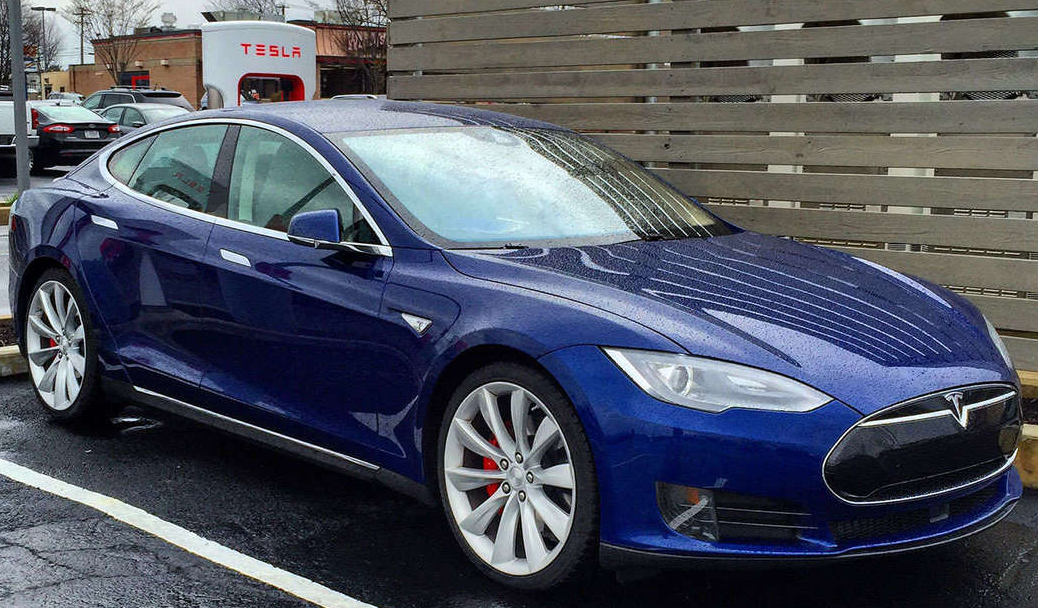
Here’s Matt Yglesias discussing Uber:
App-based ride hailing was a game changer in this context, not just because it offered a somewhat better way to get a ride, but because in Uber’s earliest cities it exploited loopholes in the way taxi regulations were written to put vehicles for hire on the road that would not have been allowed to operate as cabs. Uber then leveraged early success into getting rules changed in other cities.
In all cases, however, the basic value proposition was twofold. On the other hand, the app offered a somewhat more convenient way to get a ride. But on the other, much larger hand, the app undermined an earlier anti-consumer regulatory apparatus, greatly expanding the number of rides available and reducing their cost.
I thought about this post when reading an article by Alex Roy, discussing how Tesla might be able to transform the automotive industry:
As a standalone car, The Tesla Model S P90D Ludicrous is no more than a charismatic oddity–a handsome electric sedan with hints of Jaguar and Aston Martin in the sheetmetal and a quicker sprint to 60 mph than a Ferrari Enzo. But it’s also a ground-up rethink of what cars can, and should, be, and as part of Tesla’s larger ecosystem it represents to its buyers a blinding white beacon leading us into the automotive future.
Here’s an illustration: Make a list of everything that sucks about car ownership–purchasing, software updates, refueling, maintenance–and then realize that Tesla is upending those processes. Fueling: Charge it, for free. Glitch in the UI, or you want more range and performance? Tesla offers wireless updating to fix and/or boost the car you already own. The Germans and Detroit’s Big Three don’t do this because of dealer franchise agreements. Tesla doesn’t have dealers. You go to a Tesla-owned factory store where pricing and service are standardized.
I’d be a happy person if I never again had to visit a car dealer or auto repair shop. Around here, many of the businesses are dishonest (due to information asymmetry). So why doesn’t the market provide a solution? In the case of car dealerships it’s because government regulations won’t allow automakers to do an end run around auto dealers. Tesla is changing that. And with improved technology, the electric car industry may even be able to replace independent repair shops with manufacturer repairs done under long warranties.
But at least we can get rid of the dealers. Does anyone enjoy talking to car salesmen?

READER COMMENTS
Kevin Dick
Apr 27 2016 at 10:08pm
And all it took was rather substantial government subsidies to people at the top of the income distribution. Talk about fighting fire with fire! 🙂
Scott Sumner
Apr 28 2016 at 11:40am
Pigovian subsidies! 🙂
Tiago
Apr 28 2016 at 11:45am
Great post. I understand that dealerships are protected by the government, but I always wondered why are repair shops so bad.
Mark Bahner
Apr 28 2016 at 6:36pm
You’re missing the real coming revolution, which is not Tesla, but computer-driven cars. You write:
With a computer-driven car, you will never have to visit a car dealer or auto repair shop, because you won’t *own* the car. Further, you won’t have to make compromises about gas mileage or battery range, or passenger room or cargo-handling capability, because you won’t *own* the car.
Instead, Uber and its competitors will provide computer-driven cars to meet you at your origin. That vehicle will exactly match your needs (e.g., only one person…how about a one-seat car? or a whole soccer team…how about a small bus?). And they’ll deliver you *to the door* of your destination, rather than to a parking lot.
The arrangement will be similar to how we now purchase airplane tickets…you’ll see on your smartphone a list of options about travel times, vehicle types, and prices. If you’re willing to share part of the ride, the cost per mile would be lower.
That’s the real revolution. And Tesla might or might not survive it. It all depends on whether Elon Musk can get his mind into a world in which people do not own cars, but instead Tesla’s customers are large corporations like Uber, Hertz, Avis, etc.
Jay
Apr 29 2016 at 1:06pm
@ Mark
I’m not saying it won’t ever happen, but I think you underestimate the value of a car sitting in your driveway/parking lot and ready right when you need it (especially in non-urban environments) versus waiting for a service.
Benjamin Cole
Apr 30 2016 at 11:01am
The battery cars are not commercial yet, but advancing battery technology may be on the cusp. And from what I read, an electric motor lasts just about forever, and there are far fewer moving parts in a battery cars. A well-built battery car is middle-aged at 30. Refurbish the interior, new paint job and good to go.
I think urban fleet vehicles, and many commuters will make the switch in the next 30 years.
I have also pondered, where is the right to pollute the air other people breath?
Comments are closed.